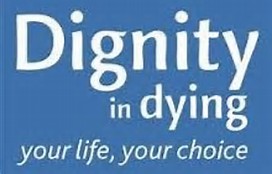A friend of mine posted this article on his Facebook page called, ‘This Bill is about me’: Baroness Campbell’s speech at yesterday’s Lords debate and it got me thinking. This speech given in the House of Lords was given about the Falconer Bill, which is a bill, modeled after the Oregon bill that would legalize assisted suicide for those who have less than six months to live (two doctors independently must agree on this), prove that this person is of sound mind to make this request, and there is no coercion. There is support for the idea of assisted suicide among the majority of Brits, but there is some fear and misgivings there. This speech though has given me cause to think. Is terminally ill and disabled the same thing? Automatically you would think no, but what do you think of as disabled? Unable to walk, what is the line between disabled and terminally ill? My mother who has multiple sclerosis considers herself disabled, but the law says she has a terminal illness, while my sister who is autistic is legally considered disabled (which I don’t think anyone would disagree with that legal definition). I find that the line between disabled and terminally ill can be blurred at some points and it would be very difficult to agree on one definition. Alright so then if we give someone the right to die does that take the burden away from us to help people who choose not to die? I know that sounds harsh and your knee jerk reaction is to say, of course not, but hear me out. Over the last 50 years the ideas of illness and dying has changed dramatically, from being sterile and clinical to being just a stage of life that with the good graces of modern medicine can be less painful. But if you give the choice of ending your life, easily will then the medical community just say, well he/she isn’t my problem because he/she could have just taken the easy route and just ended things. I know this sounds harsh and far fetched, but people and the government can take laws and ideas that seem to make since and be peaceful and nice, and these laws can be mishandled and mistreated. Do we have the right to choose when we die? That is an interesting question. We have many legal choices. I as a woman can choose whether or not I want to be fertile, I can choose if I want to keep a fetus or not, I, when I have a sound mind, have complete legal autonomy over my body, and yet do I have the right to choose when I die? At various times in US history suicide has been a criminal offence in the United States (laws varied from state to state) currently there is no law on the books against suicide, but is considered a common law crime. That is fascinating to me. It’s fascinating to me and most of those from outside the United States that major laws can vary in America from state to state. In the US only in Oregon and Washington state (at the time this article was written) can you choose to end your own life with the help of a medical professional, but you can choose to end your own life at any point. Why do you think that there are so many taboos about suicide. I think that it stems from religion mostly. God created us as beautiful individual beings with free will and by ending our lives we are denying the plan that God had for us. Circular logic, but still none the less, we as humans see this sanctity in life, religious or not. Our mothers went through hell carrying us and delivering us, and I know most would do it all again in a heartbeat, but to end your life by committing suicide is almost negating all that work your mother did. But what about for the terminally ill or disabled? I think one would need to agree on a definition of these terms. I think that there have to be safeguards put in place. I am sure there are days when many disabled people feel like ending it all, but that is just frustration. Should they have access to that? Although there are some clear cut cases, my grandfather. My grandfather had lung cancer was in pain for every breathe, and we knew that he had hours. Some would say that it would be cruel not to end his life, and yet others see a dignity in the natural process of life. These are my thoughts at the moment. I would like to hear yours.



























